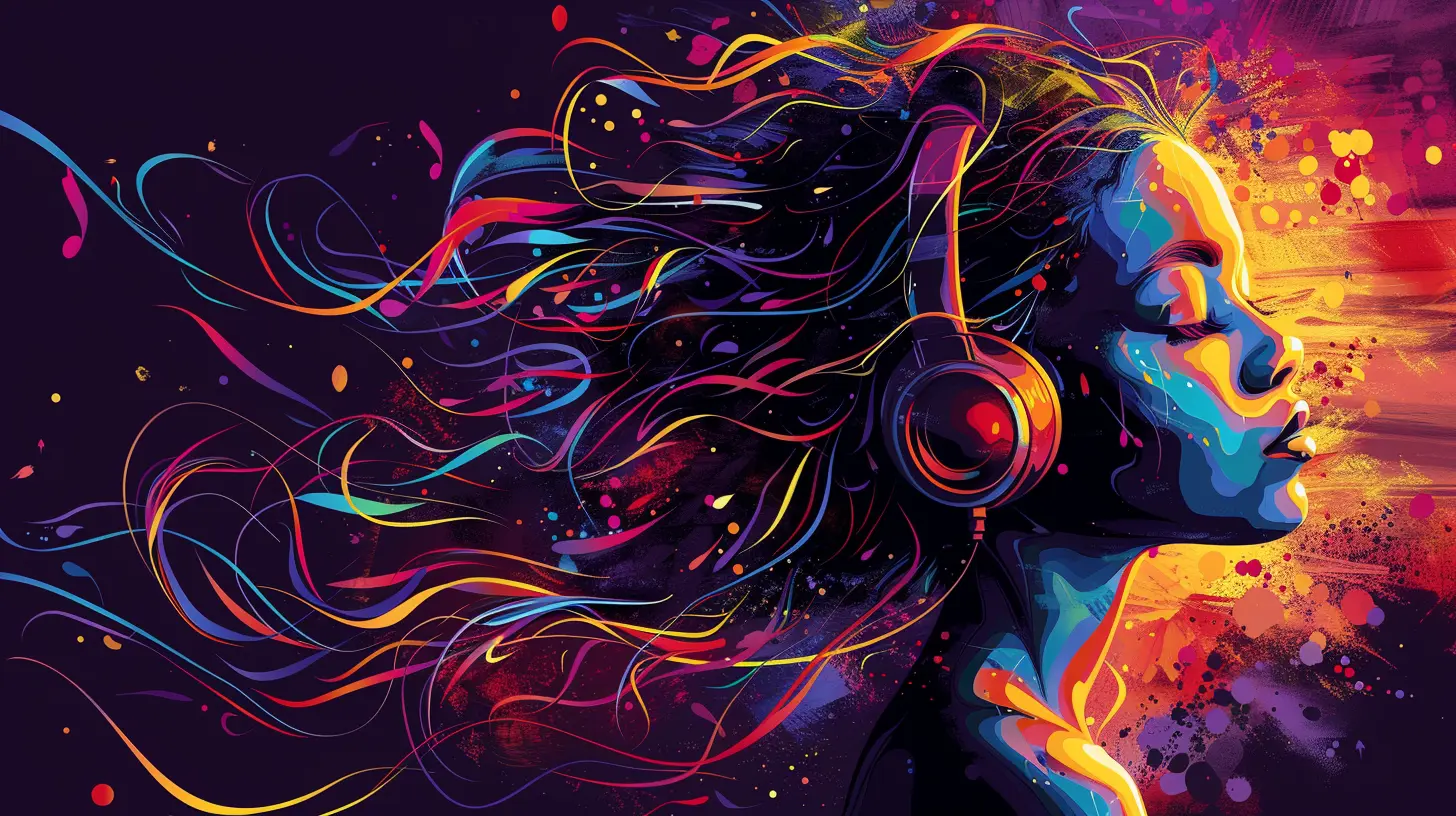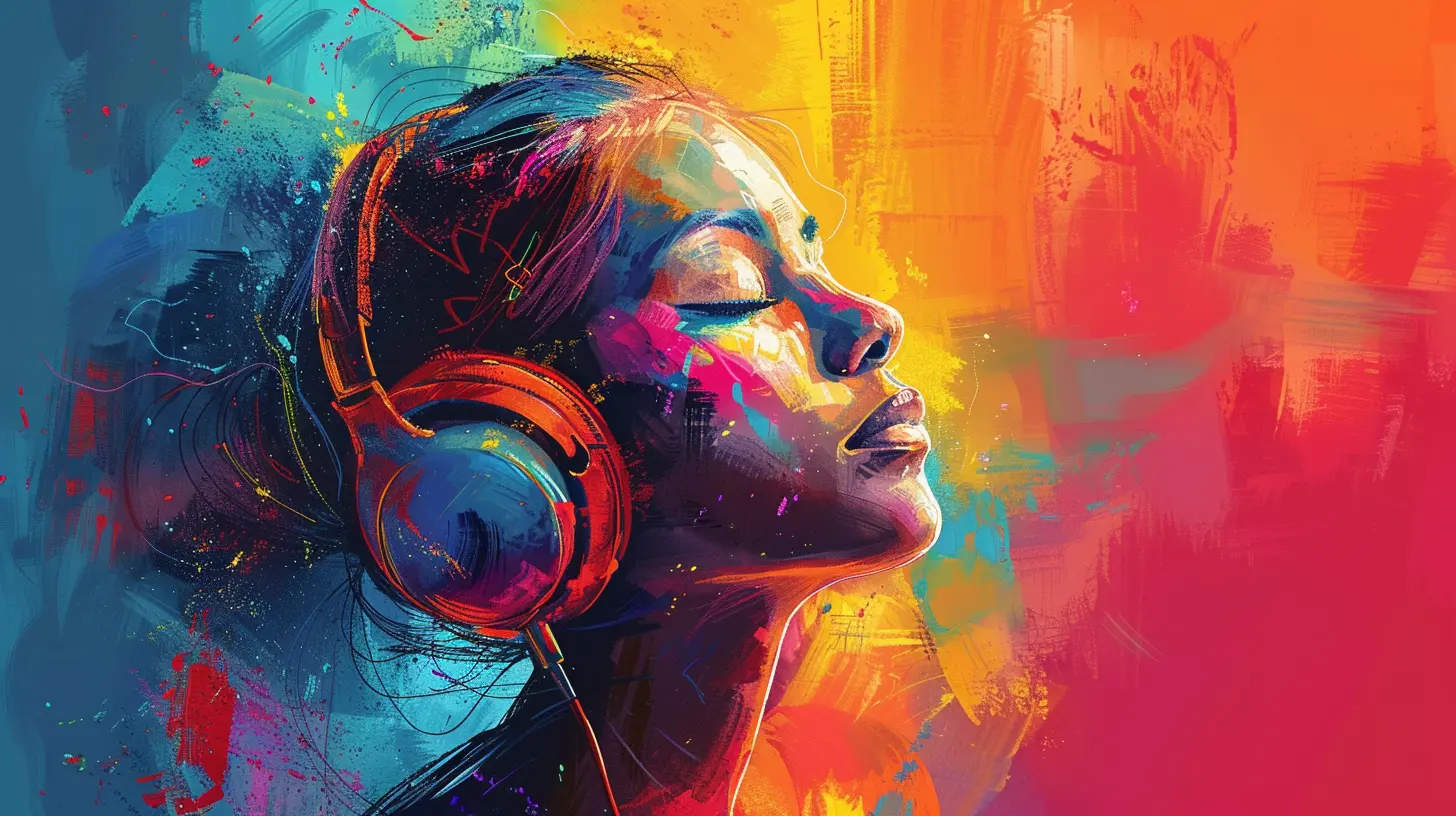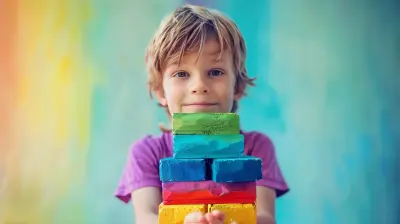The Impact of Music on Emotional Expression and Well-being
7 November 2025
Let's be real—music is basically the soundtrack to our lives. Whether it's that upbeat jam that gets you dancing in your kitchen or the tearjerker ballad you play on repeat during a breakup, music just gets us. Ever wonder why it affects us so deeply? Why that chorus hits you right in the feels or that melody gives you goosebumps?
Well, buckle up! We're diving into the powerful world of music, emotions, and how spinning some tunes can actually boost your overall well-being. Spoiler alert: this article might just inspire you to create a playlist for every mood.
🎧 Music: More Than Just Background Noise
We all know music is entertaining—but it's so much more than that. It’s like an emotional translator. When words fail, music speaks. When we don't know how we feel, the right song knows us better than we know ourselves.Think about it. Have you ever felt oddly seen after hearing a song? That’s because music taps into deep emotional layers.
So, What Is Emotional Expression Anyway?
Emotional expression is basically how we communicate our feelings—through words, body language, facial expressions, and yes... even through music. Sometimes screaming into a pillow won’t cut it, but singing along to Adele? Now that hits right.
🎤 Tuning Into the Science of Emotion and Sound
Let's get nerdy for a sec. Music affects the brain big time. When we listen to music, multiple areas of the brain light up like a Christmas tree—especially the parts responsible for emotion, memory, and even reward.Brain Chemistry 101
- Dopamine: Listening to your favorite song? You’re getting a hit of dopamine—the same feel-good chemical that’s released when you're falling in love or eating pizza.- Cortisol: Feeling stressed out? Music can lower cortisol levels. So yes, your “chill vibes” playlist isn’t just cool—it’s medicinal.
Why Does Music Make Us Cry (Or Dance)?
Music combines rhythm, melody, and lyrics in a way that bypasses logic and goes straight to the heart. It can mimic the tone and cadence of human speech, so even instrumental music can "say" something emotionally without saying a word.
😢 Music as an Emotional Mirror
Ever noticed how music helps you process emotions you didn’t even know were there? That’s because music acts like a mirror—reflecting what’s going on inside.Sad Songs Aren’t Actually Sad (Hear Me Out)
Playing sad music when you’re already feeling low might seem counterproductive, but it can actually be super healing. It allows for emotional catharsis—a fancy word that basically means “letting it all out.”- Not bottling things up? ✅
- Processing your feelings in a healthy way? ✅
- Feeling like the main character in a dramatic movie? Double ✅
Sad music helps us name and release emotions. That’s therapeutic gold.
😊 The Happy Playlist Effect
Now flip the coin. Happy, energetic music can be like an espresso shot for your soul.You know those songs that make you want to dance in your seat (or in public, zero shame)? That burst of joy isn’t random. Upbeat music increases levels of serotonin and dopamine, triggering good vibes galore.
The “Fake It Till You Make It” Phenomenon
Feeling blah? Crank up some Pharrell, Whitney, or literally anything with a beat you can’t ignore. Your mood might just follow your playlist’s lead. Music can literally trick your brain into happiness.👯 Music Helps You Feel Less Alone
Ever had that moment where a lyric hits so close to home, you feel like the artist wrote it just for you? That connective magic isn’t a coincidence. Music reminds us that others have been through what we’re going through. It's empathy in sonic form.Music Is the Ultimate Empathy Machine
Hearing someone articulate your inner mess in a three-minute track is wildly comforting. It's like a musical hug that says:> “I get it. You’re not the only one.”
So basically, music is like a supportive friend who always knows what to say—even if it's through a guitar solo.
💪 Music as a Mental Health Tool
Okay, here’s where things get really interesting. Music doesn't just influence emotions—it can actually promote long-term well-being. Therapists use it, doctors recommend it, and your brain responds to it in scientifically awesome ways.The Rise of Music Therapy
Music therapy is a legit psychological treatment that’s been around for decades. Trained therapists use songwriting, listening, and even music-making to help clients cope with stress, trauma, depression, and more.Why? Because music stimulates cognitive function, reduces anxiety, and improves emotional regulation.
Your Personalized Mood Manager
Here’s the fun part: you don’t need a therapist to benefit from music’s healing powers. Just start curating music based on what you need:- Need motivation? Create a power playlist.
- Feeling anxious? Try instrumental or acoustic vibes.
- Having a rough day? Go full-on emo and cry to your favorite piano ballads.
Your playlist is your prescription.
🎶 Music and Identity: Who You Are Is What You Play
Ever judged someone based on their playlist? (No shame, we’ve all done it.) That’s because musical taste often feels deeply personal. In fact, our favorite genres can tell us a lot about ourselves.Your Playlist, Your Personality
There’s research to back it up. People who love jazz or classical music tend to be introspective. Pop fans are often outgoing. Metalheads? Surprisingly gentle souls (don’t let the headbanging fool you).So, curating your playlist is kind of like curating your identity. Neat, right?
📱 Tech + Tunes = Emotional Toolkit on Demand
With streaming services, music is literally at our fingertips 24/7. Got a WiFi signal? You've got a tool that can boost your mood, regulate your emotions, and reflect your identity. All in your pocket.Make Music Work for You
Set reminders to play relaxing music during stressful times.Use music to transition between tasks during the day.
Build playlists that match different emotional “themes” (study, gym, Zen, crying in your car... all valid).
Music + intention = mental health magic.
🧘♀️ Music and Mindfulness: A Match Made in Heaven
Ever tried meditating but your mind’s a noisy mess? Music can help quiet the chaos.Try mindfulness music or ambient sounds next time you meditate. Or, if sitting in silence isn’t your thing, try a “mindful listen” session.
How Does That Work?
- Put on a calming song.- Close your eyes.
- Focus on each instrument, beat, and lyric.
- Let your mind ride the sound waves.
Boom—meditation with a soundtrack. You’re practically a Zen master now.
❤️ Final Thoughts: Let Music Move You
Music is emotional glue, a silent therapist, and a mood magician all rolled into one. It helps us express what we’re feeling, even when we can’t find the words. It lifts us up when we're low and grounds us when we’re flying too high. In short, it’s the ultimate emotional life hack.Next time you’re feeling “meh,” try pressing play instead of pushing your emotions away. Sing it out, dance it out, cry it out—just don’t mute what you feel.
Because when we let music move us, we move closer to understanding ourselves.
all images in this post were generated using AI tools
Category:
Emotional ExpressionAuthor:

Paulina Sanders
Discussion
rate this article
1 comments
Daniella Estes
This article insightfully explores how music profoundly influences our emotions and well-being. It highlights the therapeutic potential of music in expressing and processing feelings effectively.
November 21, 2025 at 5:59 PM

Paulina Sanders
Thank you for your thoughtful comment! I'm glad you found the exploration of music's therapeutic potential resonant.


